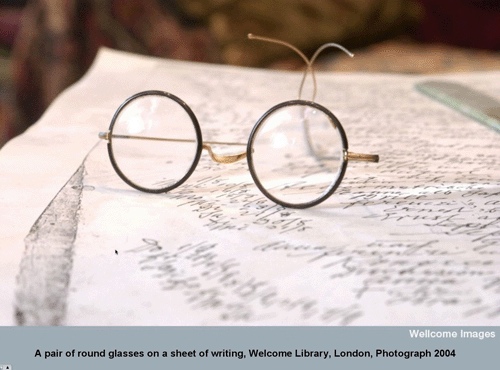 Commentary by Anna Reisman, M.D., Co-Director, Department of Internal Medicine Writers’ Workshop, Yale University School of Medicine
Commentary by Anna Reisman, M.D., Co-Director, Department of Internal Medicine Writers’ Workshop, Yale University School of Medicine
In this blog, I’ll tell you about a writing workshop for residents at Yale that centers on the craft of writing, and I’ll argue that this focus has great value for doctors-in-training.
We created the Yale Internal Medicine Residency Writers’ Workshop in 2003 to enhance residents’ power of observation, provide a creative outlet, increase empathy, encourage reflection, and, through all of these, to combat burnout. The annual workshop runs for two full days each November and was led by Abraham Verghese in year 1 and Richard Selzer in years 2-4 (Selzer and I will co-run this year’s workshop). The participants, mostly internal medicine residents with a smattering from psychiatry, pediatrics, and surgery, submit a piece of fiction or nonfiction prose. We spend a good portion of the time critiquing these manuscripts in detail. Unlike the writing that goes on in other residency programs and medical schools, where the idea is to set down one’s thoughts and experiences in ordinary prose (i.e. journal entries, critical incident reports, parallel charts), our focus is on the writing itself: how to relate our experiences, and those of our patients (whether imagined or real), in clear, resonant, interesting, and lively prose. The Department sponsors a Grand Rounds on writing and medicine two months later, as well as a reading for faculty and residents and an annual publication called Capsules that is distributed widely. This year, we created sound files of some of the readings: (http://residency.med.yale.edu/writer.html )
In a study of the workshop, we found some of what we had expected: residents in focus groups reported a heightened awareness of patients’ humanity and enhanced self-awareness. What we hadn’t expected, and what we believe was one of the key ingredients to the workshop’s success, was that the process of sharing writing created a unique camaraderie. The group bonded because everybody was similarly vulnerable.
Does a focus on the craft of writing make better doctors? Or does spontaneous, unpolished writing accomplish the same thing? I believe that there is a role for both in medical training. Informal writing – journal writing, for example – can be a very effective way to process our many often overwhelming experiences. Similarly, sessions devoted to writing critical incident reports can be a way to bring disturbing interactions (that might otherwise never see the light of day) to a discussion format with peers.
Taking the next step – finessing one of these unpolished pieces into a publishable piece of writing – is something else altogether. In the process of reworking the language, the rhythm, the images, the presentation of ideas, the writer must explore the experience more thoroughly in order to make the story logical and clear. For example, my own journal is a rich repository of experience but when I extract a section and prune and shape it into an essay or story, that is when I really start to understand its deeper meaning.
An emphasis on craft will, of course, appeal to a subset of residents who are interested in improving their creative writing skills. But shouldn’t all physicians be able to write clearly? I believe that an opportunity to gain tools for expressing one’s thoughts and beliefs in a variety of settings — whether writing a story, an opinion piece for a newspaper, or a research study — should not be missed. You can’t go wrong with good writing skills.
Felice Aull
I’m wondering whether it’s been possible to assess how workshop participants interacted with patients and colleagues after going through this training, and whether any longer-term follow-up is being done to determine if the benefits persisted or if improved writing skills were in evidence.
Fatima Azevedo
Hello Dr. Anna Reisman,
Congratulations for this workshop in literature for your medical-residents.
I live in Fortaleza-Ceará-BRAZIL and teach at Faculdade de Medicina da Universidade Federal do Ceará. We are also working Humanities in our School of Medicine with Art and Literature in a 4 credits module. You gave me a great idea with this workshop.I believe we are doing the right things to make future doctors more sensitive and better in the profession and as human beings.
Sincerelly,
Fátima Azevêdo,MD
Anna Reisman
Thanks, Fatima – I’m happy that you might try something similar at your institution.
In response to Felice Aull’s comment, assessing doctor-patient communication skills of workshop participants is something we’d like to be able to do in the future, although it would be quite a challenge. We are keeping in touch with prior participants and will eventually report on some of the long-term effects of the workshop.
Dr Pat Zehr
Hi I am a Canadian Obgyn in practice for 17 years. I have done some writing of short stories, but am interested in doing a lot more, and learning more about doing it right. Do you still offer this course, and if so would there be room for someone like me? thanks pat zehr
Anna Reisman
Pat, the Yale workshop continues to run annually, but it’s only for Yale residents. There are a number of other writing courses and workshops designed for doctors, such as the week-long program at Sarah Lawrence college (Writing the Medical Experience), a seminar at Harvard, the Narrative Medicine workshops (and master’s degree) at Columbia, and there are a variety of courses through SEAK. I haven’t been to any of these conferences myself but I’ve heard good things about them. You should also consider non-medical writing workshops, such as the Wesleyan Writers’ Conference, which I can vouch for as a superb program. I am not familiar with Canadian writing programs. You might also check Poets and Writers magazine which lists many U.S. and international workshops and courses and degree programs.